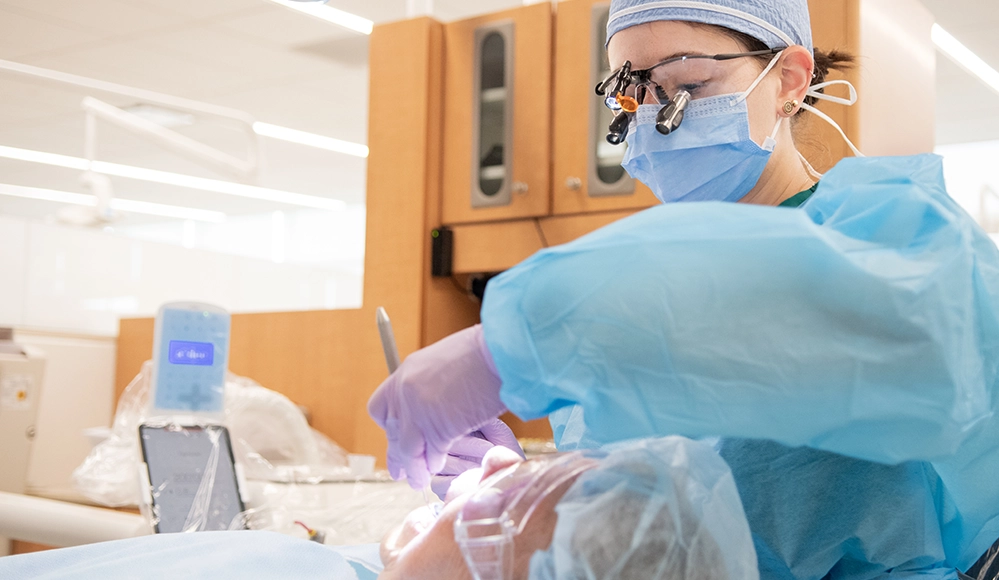
The stereotype of a grandmother with dentures is a popular one in movies and TV, but it doesn’t need to be the reality for most seniors. Proper dental care and a bit of knowledge can ensure your smile stays healthy and real for a long time beyond just brushing twice a day and flossing. Seniors should watch for signs of dental problems and keep their dentists informed of any changes in their oral health.
Watch for dry mouth—A common senior issue
Be aware of dry mouth and a lack of saliva, which can be a side effect of many medications or an oral manifestation associated with certain medical conditions. Individuals with diabetes or certain autoimmune diseases may experience dry mouth. Sjögren’s syndrome, an autoimmune disease that affects the body’s moisture-producing glands, is common in seniors, especially women.
“Frequent sips of water and being mindful of limiting simple carbohydrates and acidic foods in the diet are important,” said Mallonee. “Caffeinated beverages have a diuretic effect and may contribute further to dry mouth.”

Get your vitamin D for strong teeth
Get plenty of vitamin D, which is found in salmon and egg yolks and can also be obtained from five to 30 minutes of sun exposure. It helps strengthen tooth enamel and supports gum health, while also promoting healthy bones and immune function.
“Food and sunshine are ideal choices to obtain necessary amounts,” Mallonee said. “Supplementing this fat-soluble nutrient should only be considered under a physician’s guidance.
Don’t overlook vitamin B12 for gum health
Due to reduced hydrochloric acid production associated with aging, the body’s ability to absorb certain vitamins diminishes, and vitamin B12 is one specific nutrient often affected, she said.
Lower levels of this water-soluble vitamin have been linked to a higher risk of periodontitis, a common gum infection that damages the soft tissue around teeth. If left untreated, the disease can destroy the bone that supports the teeth, potentially leading to tooth loss.
Sources of B12 include poultry, meat, fish, dairy products, and fortified foods like breakfast cereal.
The bottom line on senior dental care
“It’s important for oral health care providers to stay informed about changes that may occur in the mouths of our senior population,” Mallonee said. “Preventive education regarding diet and home care is essential.”
Key Takeaways:
- Stay hydrated and limit acidic foods to combat dry mouth
- Get vitamin D from food and moderate sun exposure
- Include foods rich in B12 to prevent gum disease.
- Visit your dentist regularly and keep them updated on any changes in your oral health.
The key is staying proactive—small changes in diet, supplements, and dental habits can help keep your smile healthy for life.





